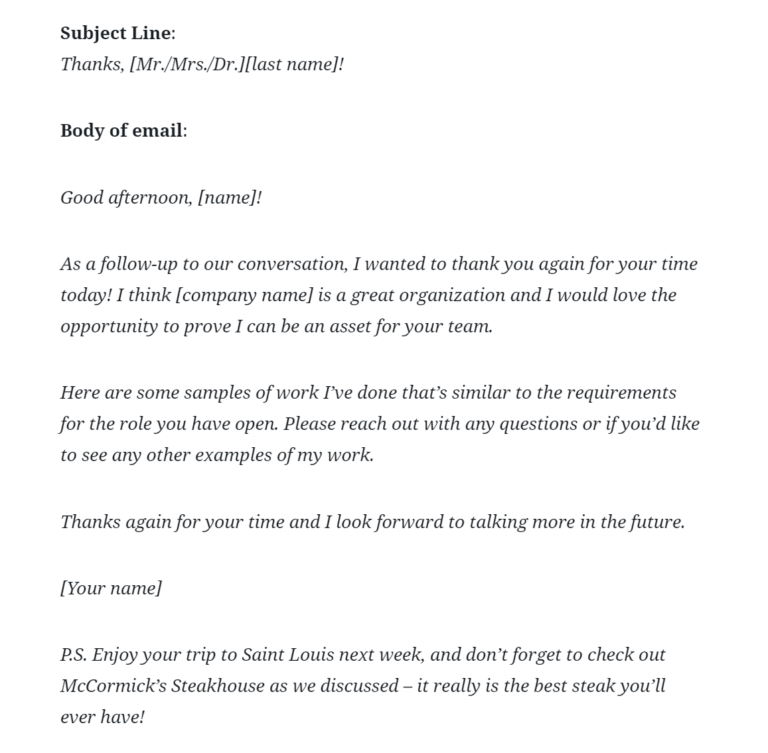


One of the biggest concerns of job seekers is that once they have the interview, they usually never hear back about the position - or understand what the status is of their consideration for the position.Ī follow up will help give you a little bit more peace of mind. The next reason you should send a follow up is that it will help give you peace of mind.

If you have worked in an environment where you were a team member and accomplished those goals before, you can once again mention that previous experience in a follow up note, letter, or email.ĭoing this will help remind them once again that you should be the leading candidate in their eyes. If one of the things the interviewer or hiring manager mentioned in the interview was that they want to improve their patient satisfaction levels, or raise the level of care for the hospital or healthcare facility overall. In addition, you can use this follow up to highlight how you are more qualified than some of the other candidates that the interviewer or hiring manager might be considering for the position.įor instance, we’ve all been in a situation where we left the interview and wished we had mentioned something - or had a better answer to one of the questions they asked.įollowing up with them and detailing your experience a little bit more helps you answer some of those questions and qualifications you wanted to mention in the interview but forgot. One of the many reasons you should send a follow up is because you can strut your stuff a little bit more.įollow up notes or emails offer you another opportunity to once again detail your credentials, experience, and background. Many individuals feel that they will be bothering their interviewer if they follow up with them and remind them how passionate they are about the job posting and remind them why they want the job opportunity. In today’s competitive job market, every job seeker needs to go above and beyond to take extra steps to separate themselves from the competition.įollowing up with the interviewer or hiring manager is a great way of separating yourself from other job seekers who aren’t willing to spend a little extra effort. How Following Up Can Help You Land The Job In addition, once you send the follow up, we’ll cover what you should expect, and how you can get started on what to do next after you have followed up and are awaiting a response.
#FOLLOW UP EMAIL AFTER INTERVIEW STATUS HOW TO#
In this chapter, we’re going to discuss what you should include in your follow up, how following up can help you land the job, do’s and don’ts you should consider when following up, 4 ways you should not follow up, how to craft an email follow up, and what type of follow up you should use after each scenario. Seeing as how you are writing one for the healthcare industry, you should probably just stick to email.įollow up emails are really simple to make, and you can make changes on the fly without having to rewrite them with a pen as you typically would with a handwritten follow up note. Handwritten letters are usually for more traditional, old-fashioned jobs. You can either send an email or a nice, handwritten letter. It is important that you send the letters within a day of the interview a quick follow up indicates a strong interest in the position and shows them you are serious about the job.Īlso, consider the company culture when making thank you letters. Thank you notes will help maximize your chances of landing the job. Now what? Take this downtime to send thank you letters. You had the interview and you think it went well. In this chapter, we'll discuss the follow up thank you email that's customary after the interview has been conducted. Reviewing those questions should have helped establish yourself as one of the leading candidates in the candidate selection process.īut now that you’ve separated yourself as one of the leading candidates, how do you go from being considered - to being the one?Īn interview follow up is critical in ensuring that you separate yourself from the final candidates, and become the leading candidate to secure the job. 4: Interview Questions we went over the questions that jobs seekers ought to be most familiar with when hunting for new opportunities.


 0 kommentar(er)
0 kommentar(er)
